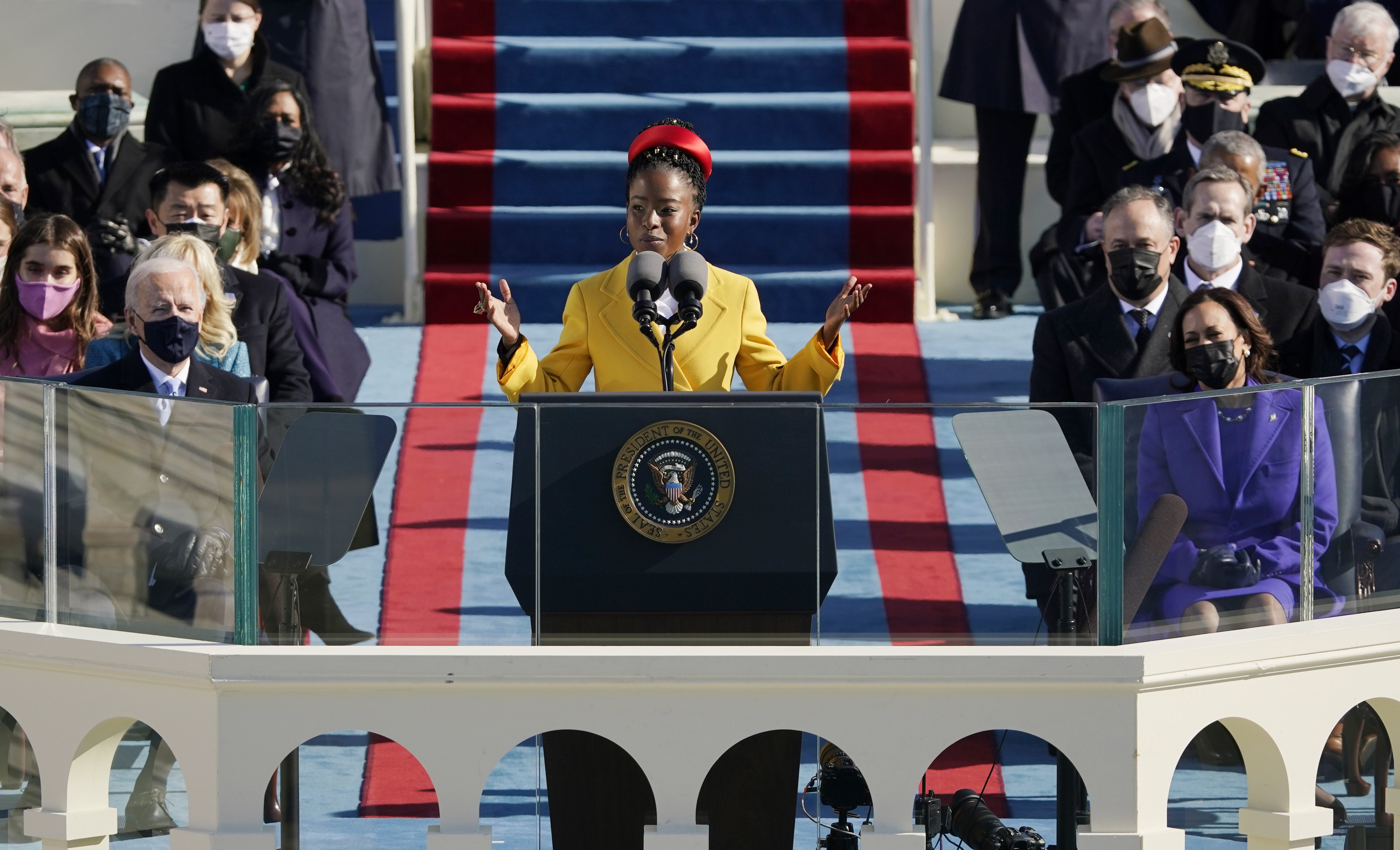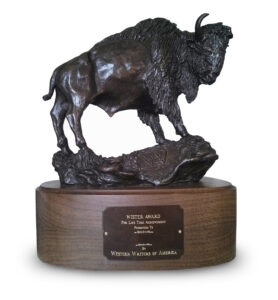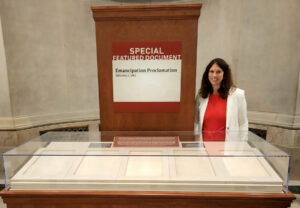At just 19-years-old, Amanda Gorman became the first National Youth Poet Laureate. On Wednesday, at age 22, she became the youngest person to deliver a poem at a presidential inauguration, joining a small group of poets— including Robert Frost and Maya Angelou—to have ever done so.
“It was really daunting to begin the poem because you don’t even really know the entry point in which to step into the murk,” Gorman told NPR during an interview on Monday.
Just two weeks ago the poet was struggling to finish. Given no direction on what to write other than she would be contributing to the inauguration’s theme of “America United,” Gorman was growing concerned that she would be unable to compose such a poem.
“I had this huge thing, probably one of the most important things I’ll ever do in my career,” she told the New York Times. “It was like, if I try to climb this mountain all at once, I’m just going to pass out.”
So, like the Harvard graduate had always done, she began to study. She researched famous orators who had drawn inspiration not only from the present but possessed a firm foundational understanding of the past. She read the speeches of President Abraham Lincoln, Frederick Douglass, Rev. Martin Luther King Jr., and even drew inspiration from British prime minister Winston Churchill.
She looked for, according to NPR, “orators from throughout history who have spoken about not just a divided America but also a united America.”
Gorman was about halfway through her poem when partisan politics fomented into politically motivated violence on January 6. It was not, she told the Times, something that she could “gloss over.”
“We have to confront these realities if we’re going to move forward, so that’s also an important touchstone of the poem,” she said in the interview. “There is space for grief and horror and hope and unity, and I also hope that there is a breath for joy in the poem, because I do think we have a lot to celebrate at this inauguration.”
Like Lincoln’s Second Inaugural Address in which he recited “With malice toward none; with charity for all; with firmness in the right, as God gives us to see the right, let us strive on to finish the work we are in; to bind up the nation’s wounds…” Gorman too sought to strike a unifying message, writing:
We lay down our arms so we can reach out our arms to one another.
We seek harm to none and harmony for all.
Let the globe, if nothing else, say this is true.
That even as we grieved, we grew.
That even as we hurt, we hoped.
That even as we tired, we tried.
That we’ll forever be tied together, victorious.
Not because we will never again know defeat, but because we will never again sow division.
And, like Churchill who famously drew upon the history of the British Isles to steel the spine of his people during World War II, Gorman invoked the strength of history’s greatest experiment, democracy. Writing that:
But while democracy can be periodically delayed,
It can never be permanently defeated.
In this truth, in this faith we trust.
For while we have our eyes on the future,
History has its eyes on us.
Watch Gorman deliver her poem “The Hill We Climb,” in full.
WATCH: 22-year-old @TheAmandaGorman is the youngest poet to ever read at an #Inauguration. pic.twitter.com/xderMa7trm
— CBS Mornings (@CBSMornings) January 20, 2021





